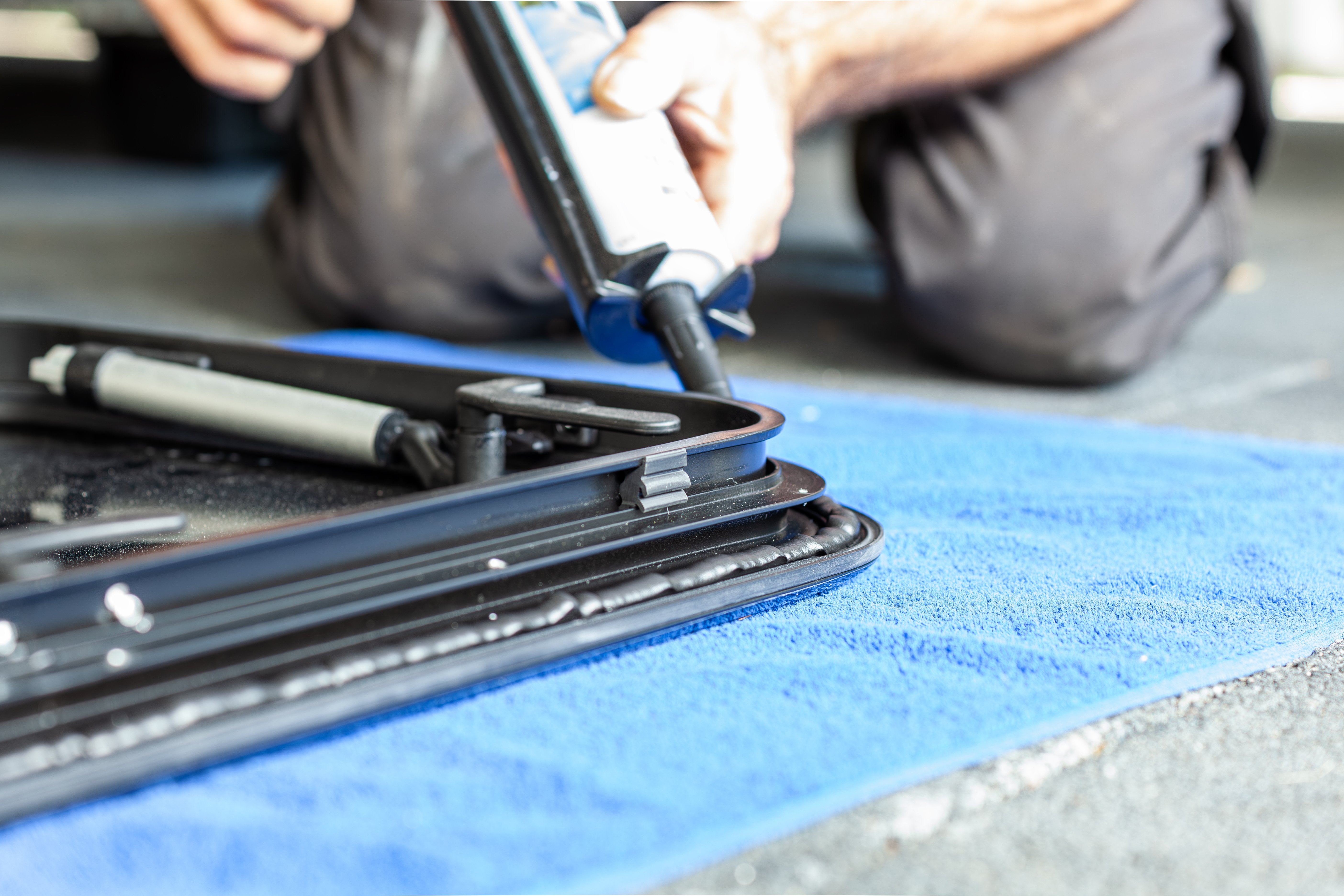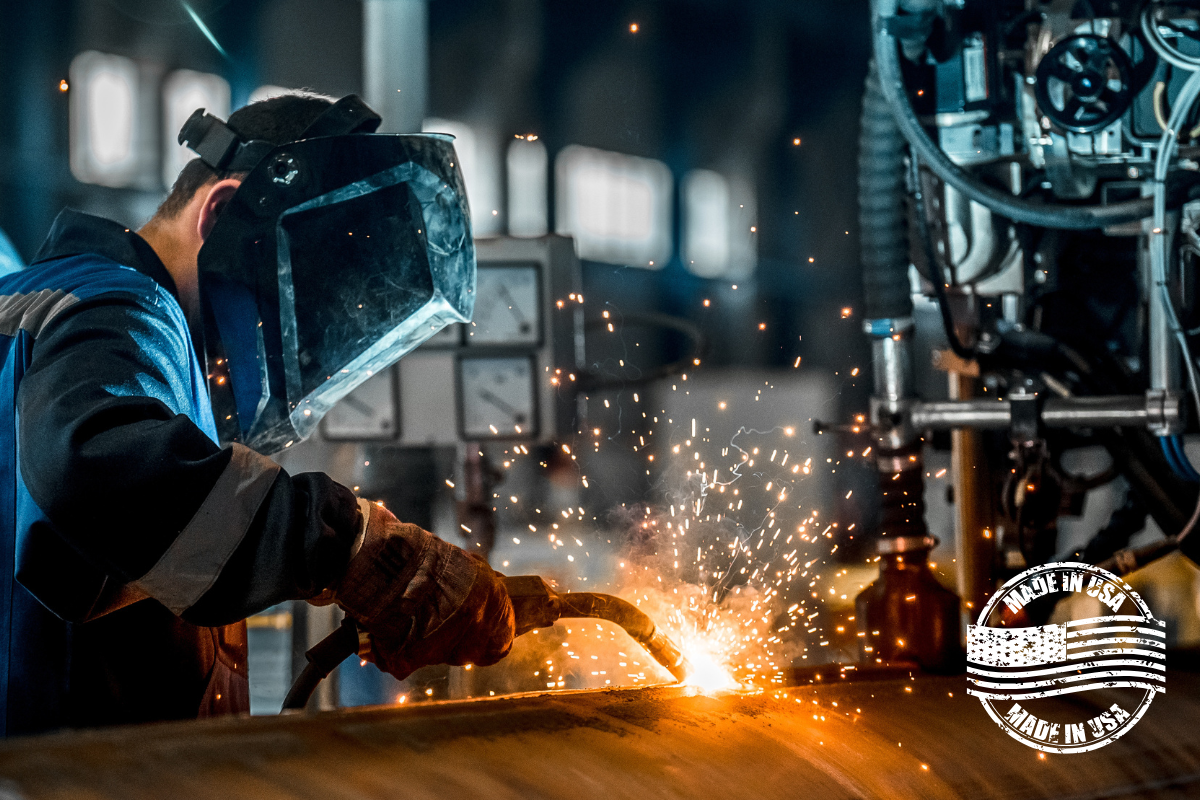
Like most fasteners, bolts are available in a wide variety of styles and materials to meet the 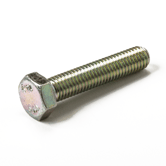 needs of a world of applications. In the industrial world, carbon and alloy steel bolts are used most often. Steel bolts can be divided into two major categories: High Strength Structural and Common.
needs of a world of applications. In the industrial world, carbon and alloy steel bolts are used most often. Steel bolts can be divided into two major categories: High Strength Structural and Common.
Steel bolts are rated and specified by numerous certifying bodies, but the two primary associations in the United States are ASTM International (formerly American Society for Testing and Materials) and the SAE International (formerly Society for Automotive Engineers). ASTM standards for bolts and fasteners pertain primarily to construction applications, while SAE deals with machinery and automotive applications as well as those for original equipment manufacturing.
High Strength Structural Steel Bolts are typically used to join steel structures in construction. They’re mostly composed of quenched or tempered steel and have a minimum tensile strength of 120 ksi for use in structural connections. Examples are ASTM rated A325 and A490, Types 1 and 3 structural hex bolts.
Grade A325 bolts are readily available in many hardware, home improvement, and automotive retail outlets, and have nearly the same chemical make-up and physical strength of an SAE Grade 5 bolt (see chart below).
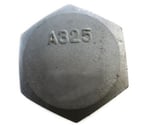 A325 and A490 are both explicitly designed for steel-to-steel connection, and both have heads engineered to the same sizes as their hex nut, with the same nominal diameter, allowing one wrench or socket size to be used on both the bolt and the nut.
A325 and A490 are both explicitly designed for steel-to-steel connection, and both have heads engineered to the same sizes as their hex nut, with the same nominal diameter, allowing one wrench or socket size to be used on both the bolt and the nut.
The Type 3 version of both of these types of bolts is composed of “weathering steel,” which contains copper, chromium, and nickel giving it inherent atmospheric corrosion resistance and weathering properties. Any rust that accumulates on Type 3 bolts actually serves as a protective coating and seals the bolt. This offers nearly twice the corrosion resistance of Type 1.
It is in the Type 1 properties where A325 and A490 differ. Here, the A325 version is composed of medium carbon steel that can be galvanized to protect bolts against corrosion. However, this galvanized coating does not render the bolts corrosion-proof. This makes it vitally important that they are appropriately stored on the job site to prevent corrosion. A490 Type 1 bolts are composed of alloy steel and used in applications requiring higher yield and tensile strength than A325 can support. These can also be galvanized to provide corrosion resistance.
Steave Klein, National Sales Manager for Fasteners with Austin Hardware, provides this note of caution for anyone requesting galvanized bolt. “Manufacturers occasionally use the term ‘galvanized’ interchangeably with mechanical zinc plating, but they are NOT the same. True galvanizing is a thick coating that requires a special manufacturing process to ensure the threads are accurate. In many cases, a mechanical zinc plating is really all that is necessary.”
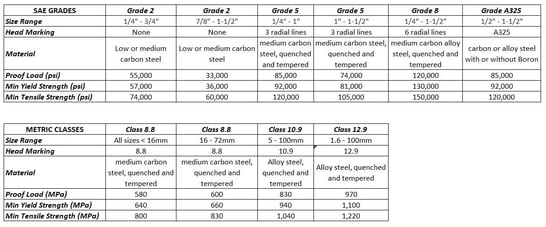
Machine Design offers a good synopsis, along with a brief summary of each of 12 types of Common bolts. Those types include Track, Square, Plow, Round, Aircraft, Lag, Flanged, Elevator, Bent, Carriage, Hex, and Countersunk.
The SAE also provides the most frequently referenced grading system for Common bolts in the U.S. Of the many different bolt grades, SAE grades 2, 5, and 8 are used most often. Metric bolts are also commonly referenced with classes 5.8, 8.8, and 10.9 being the respective equivalents of the SAE grades mentioned above grades listed. Each grade equates to a specific bolt strength. One commonality between all grading systems is that the higher the number, the stronger the bolt.
commonly referenced with classes 5.8, 8.8, and 10.9 being the respective equivalents of the SAE grades mentioned above grades listed. Each grade equates to a specific bolt strength. One commonality between all grading systems is that the higher the number, the stronger the bolt.
 For most home and automotive applications, a grade 8 bolt strength (10.9 metric) is the maximum strength you’ll need. The chart below shows a small example of graded bolts and their properties.
For most home and automotive applications, a grade 8 bolt strength (10.9 metric) is the maximum strength you’ll need. The chart below shows a small example of graded bolts and their properties.
Austin Hardware® has a wide selection of bolts in different styles and materials. Shop online or contact your nearest Austin Hardware® location for more information or customer assistance.


